| |
Session 01
Theoretical Overview
|
| |
|
MUSLIM Institute organized a seminar on "Science & Metaphysics: A Muslim Perspective" on Thursday April 26, 2018 at National Library of Pakistan, Islamabad. First session “Theoretical Overview” was chaired by Dr. Z. A. Awan (Scholar & Writer), Sahibzada Sultan Ahmad Ali (Chairman, MUSLIM Institute) delivered the welcome note. Mr. Asif Tanveer Awan (Research Associate, MUSLIM Institute) moderated the proceedings of the session. Researchers, students, academicians, representatives of think tanks, journalists, politicians, poets and people from different walks of life participated in the seminar.
Brief Summary of the views shared by the Speakers is as under:
|
|
Welcoming Remarks
Sahibzada Sultan Ahmad Ali
Chairman, MUSLIM Institute
|
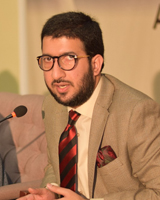 |
|
The purpose of arranging this seminar is to discuss this important subject which, in one form or the other, has remained under discussion since the beginning of known history. Today, philosophers, theologians, scholars, historians, scientists, anthropologists, psychologists, Sufis and experts of all other areas of knowledge tend to reflect upon the debate of ‘ultimate reality’, ‘consciousness’, ‘fate of universe’ and other such big questions which has made this debate even more interesting and relevant. In absence of clarity, the idea of scientism has evolved which further takes the scientific dominance into the social aspects and hence forcing the idea of eradication of ‘universal truth’ or universal values. Even the most precious common heritage of humanity, the ‘consciousness’ itself has been challenged to be a mere illusion. There is no denying the fact that Muslim civilization has played its critical role in evolution of knowledge especially about metaphysics. Scholars like Imam Ghazali and Ibn Arabi are praised for their ground breaking ideas. The birth of such personalities is of course not accidental but result of continuous habit of the civilization of appetite for knowledge. With such an excellent historical tradition, we need to open this debate in order to answer the questions, to raise the questions and even to question the questions.
|
|
|
Science, Morality and Ethics
Dr. Aliya Sohail Khan
Principal Govt. Post Graduate College for Women, Rawalpindi
|
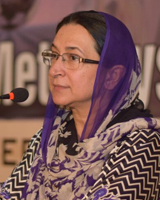 |
|
Contributions made by natural sciences are enormous. But, an acute disassociation in the spheres of science, morals and arts prevail. It was the blessing of aggressive triumph of technological modes of knowing which, later one, in 1600s, became scientism. It is the belief that there is no reality and truth except that revealed by science. Reductive effects of desacralized knowledge include that knowledge which is reduced to the collection of facts and the purpose and meaning of life include moral values differentiating human beings. On the other hand, objectivist myth cannot differentiate between good and bad. Reductive view of reality and truth include reality that is reduced to observable phenomena registered through external sciences and the reality of abstractions outside time and space are denied. Reductive view of human nature include materialist, selfish model of human nature and life presented by Hobbes, Adam Smith, Malthus, Darwin, Freud and Marx. Art and literature make us feel and experience the Divine, the Scared, the Hereafter in different forms. If we strengthen value system, it will promote faith, idealism, religion, compassion, sacrifice, ecstasy of spiritual experience and divine love, conscience, beauty and real happiness.
|
|
|
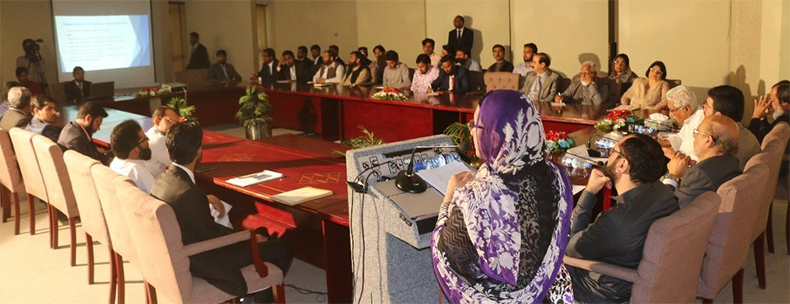 |
|
Science and Religion: Myth Vs Reality
Dr. Asim Raza
University of Central Punjab, Lahore
|
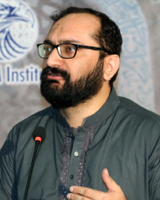 |
|
A commonly known fact regarding religion and science is that the religion is not merely the name of traditions and values. Whereas, science is the systematic arrangements of various concepts. This scientific arrangement carries in itself fundamental beauty in the shape of its universal repeatability. In the seventeenth century, argumentation regarding religion was considered as only the philosophy of religion which means that religion was not considered as “Deen”. In any discourse regarding religion and science, we have to keep into consideration the circles of religion, science and philosophy. But, these three circles do not answer the basic questions raised by a human and each circle demands that his argumentation regarding reality is stronger than any other circle. But, when this debate turns into the house of intellectuals, it appears into diversity. John Palkan has presented four models for the understanding of science and religion. First, conflict between science and religion. Second, free state of science and religion. Third, dialogue between science and religion. Fourth, integration of science and religion. Imam Ghazali negated the philosophical discourse of atheist Greek philosophers while arguing philosophically whereas he utilized the techniques of monotheist philosophers in his works like deductive logic and concept of numbers.
|
|
|
Empiricism and Quran
Prof. Dr. Dildar Ahmad Alvi
Dean, Natural Sciences, Forman Christian College University, Lahore
|
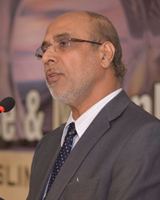 |
|
It has become inevitable for us that we have to draw identical structure of the fundamentals of the Holy Quran. And before this, we need to focus on self-awareness. We have to peep into ourselves in the light of evolution reached by knowledge in this world, the often ignored aspect. I have observed that our problems are simple which are mostly concerned with knowledge. For example, capacity building of those people is very important who are involved in the interpretation and translation of the Holy Quran. When Quran says that Indeed, your Lord is Allah, who created the heavens and earth in six days (Al A’raf 7:54). In this regard, any definition of days will be regarded as period of time.It is pertinent to mention here that Allah is not subservient to time and wisdom has been revealed by fixing the time. One may call it evolution or anything else. But, the concept of evolution is predefined carrying various structural forms. We will be able to differentiate between these fundamentals when we are embraced with openness while looking things in a most purified manner.
|
|
|
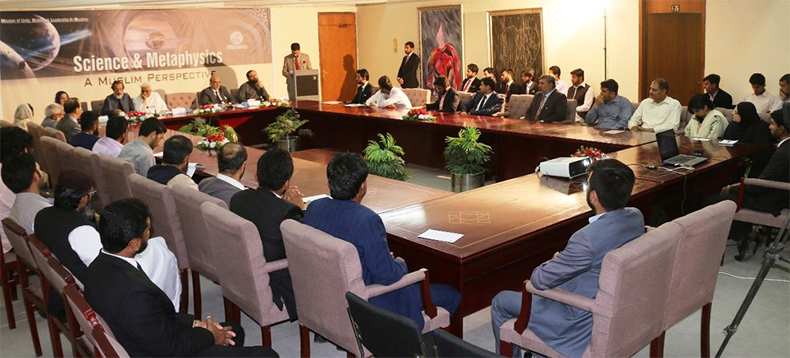 |
|
Role of Science in Society
Prof. Dr. Suheyl Umar
Former Director Iqbal Academy, Pakistan & Member Advisory Board, MUSLIM PERSPECTIVES Journal
|
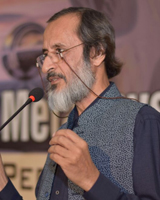 |
|
The question “Why should we teach social science subjects to the students of science?” is frequently discussed in the universities. Modern science only gives us sectional view of reality and suffers from tunnel view. It deals with part of reality because there are six things(values, meanings, final causes, invisibles, qualities and our superiors) science cannot get its hands on. If science cannot provide us all aspects of the worldview, we need input from other dimensions. First, Science can deal with descriptive values but not with intrinsic or normative ones. Second, science can deal with cognitive meanings but not with existential or ultimate meanings. Third, science describes the final causes or purpose of life in the living world but it is invalid to imagine final cause of life beyond animate world. Fourth, science is suitable for quantitative entities but not good at qualities. Fifth, science can work with some invisible which have impact on visible. However, science is unable to imagine the invisibles. Sixth, our superiors if such exist. This limitation doesn’t prove that being greater than ourselves exist but it does leave the question open because absence of evidence is not the evidence of absence and science has made that mistake again and again. The disappearance of higher planes of reality from our contemporary philosophical maps will separate modernity from our traditions.
|
|
|
Remarks of the Chair
Dr. Z.A. Awan
Scholar & Writer
|
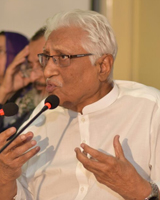 |
|
First of All, I would like to congratulate Sahibzada Sultan Ahmad Ali who has organised such a wonderful Seminar and wreathed it with beautiful pearls. There are many papers on technology and science. There are many influential things too. Firstly, Dr. Aliya said it quite well that other than rationalization and intellectualism there is a truth. It is a major challenge how to bridge the gap between revelation and rational intellectualism. ‘Necessity is the mother of invention’ is the basic fundamental of science. All the scientific discoveries are towards religious side because they give some kind of institution. Darwin presented his theory then new theories and neo Darwinism were also presented, these all things remained mixed with religion. It is wonder that hundred years old priest who used to collect flowers invented three laws of inheritance. In my opinion all of his intuition was religious and he invented these laws. I will end on these lines
?? ?????? ???? ?????? ?? ????
?? ? ??? ?? ????? ????? ?? ????? |
The Life perhaps is still raw and incomplete:
Be and it becomes e’er doth a voice repeat. |
|
|
|
| |
Interactive Session:
|
| |
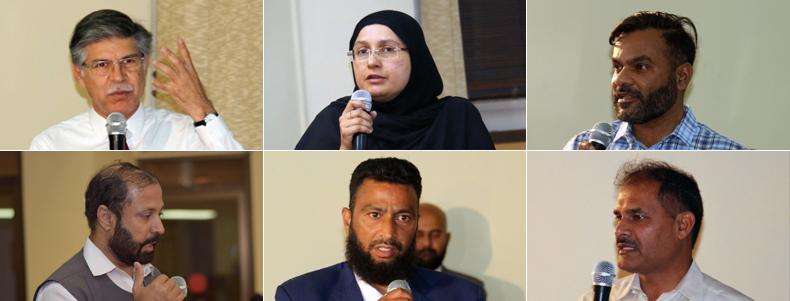 |
|
Brief summary of the interactive session is as follows:
Dr. Dildar Ahmad Alvi while answering a question said, In order to understand Holy Quran we need to use multiple sources as everyone has written commentary according to his own domain of knowledge. Holy Quran is fathomless so we should continue to understand it.
Dr. Aliya Sohail Khan said that the very objective of this gathering is to synthesize the polarity because there is no clash as such and because human beings are protected by Devine and they are programmed to reach out to the Devine, this cannot be erased. One day the researchers of subjective physics will come to see that there are different realities and truth which they have to focus and understand, there is much more in heaven what science has discovered so far. Science has still long way to go.
Dr. Suhayel Umar said in an answer that, if Science will get appropriate time, it will overcome its limitedness and will be able to explain and get over all those things which are out of its domain yet. But the second opinion/view is that until and unless it will not change its fundamental scientific methodology there will be nothing different.
|
| |









